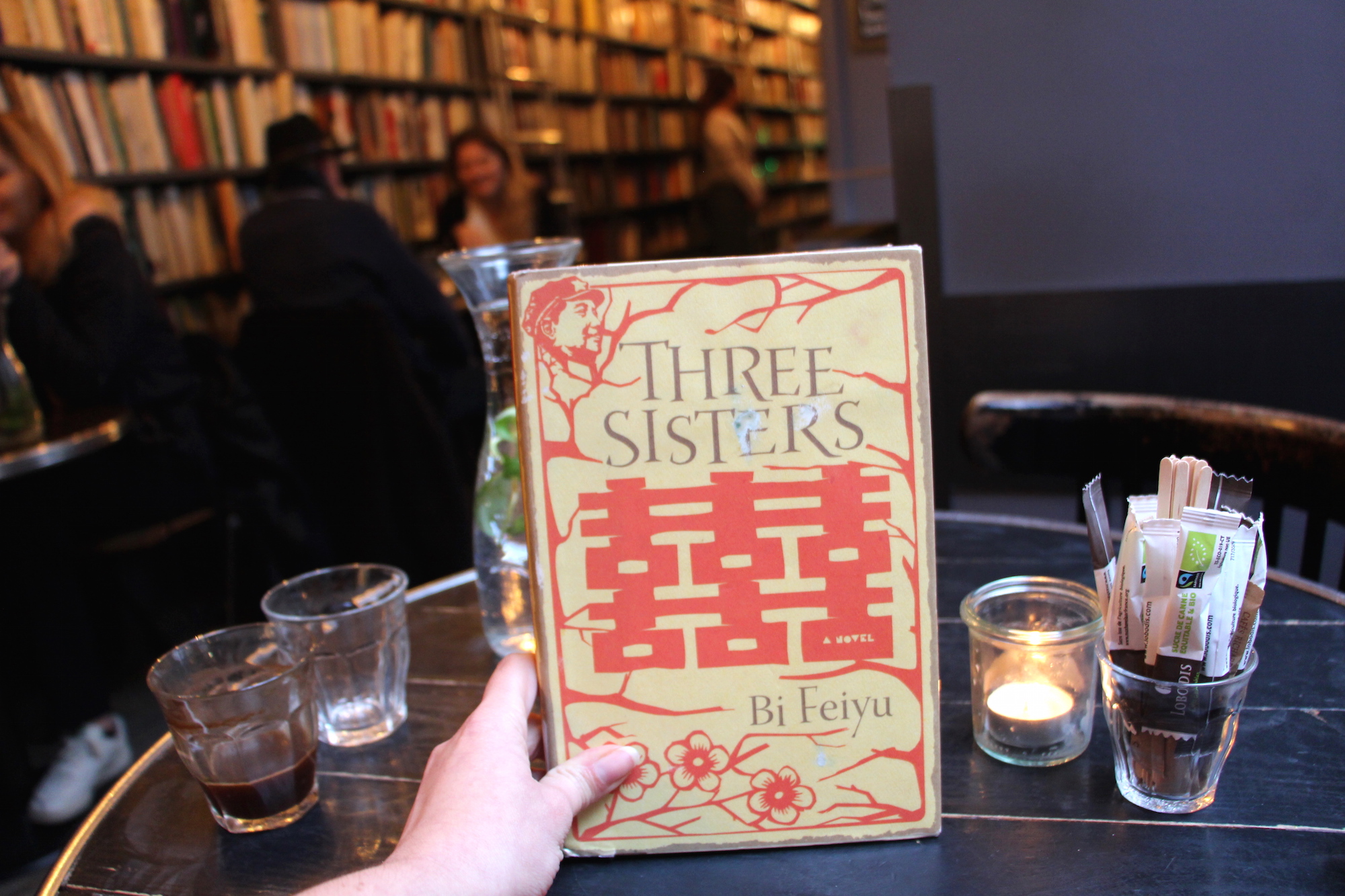When I grabbed Bi Feiyu’s Three Sisters off the shelf, I saw the title and, as someone with two sisters, thought it would be a book I would enjoy. I did, but not for the reasons I thought I would.
The book tells the story of a family of not three but seven sisters living in a rural village in China. The first third of the book is told from the perspective of Yumi, the oldest sister, who feels like a de facto mother to her six little sisters and new baby brother, affectionately nicknamed Little Eight. The book then leaps into the heads of the prettiest sister, Yuxiu, and finally the youngest sister, Yuyang. Each third explores the issues and difficulties that that individual sister faces, with some – but not a lot – of overlap with the characters the reader has already gotten to know. In this way, the book reads more like a trilogy than one novel, especially with regards to Yuyang’s story, which is almost completely divorced from the characters and settings introduced in the first part.
There are elements of these stories that I found troubling, particularly with regards to the sexualization of the girls. It’s not that I don’t think sex had a place in these coming-of-age stories; it’s more that upon reading the very first sexual description, I flipped to the back inside cover, and thought to myself, “Oh, a man wrote this. Makes sense.”
That said, the sparsely beautiful text draws you in, and, most of all, I loved little flickers of moments that both jarringly ejected me from the story and eventually drew me back in: things like a character “seductively” biting a loose thread off of another character’s jacket or evocations of Beijing Time. In a workshop setting, noting things that took the reader out of the story would be a criticism, but in this context, these little moments actually served as a reminder that I was in a world I wouldn’t usually be invited into.
Perhaps the best example was the following passage:
“Well,” Yuxiu said to help him, “my sister’s name is Yumi, which means I have to be ‘Yu’ something. The ‘mi’ in her name means ‘rice,’ so you wouldn’t expect me to be called ‘da mi’ – big rice – would you?”
There are so many assumptions laced throughout this paragraph of things that I, the reader, am supposed to know and don’t, and that’s where I think the mastery lies.
Reading, in my mind, is always about being let into another world that is just familiar enough that you can identify with something in it.The emotions in Three Sisters – jealousy, first love, respect, duty – are things that any sisters feel, and that makes this world, totally foreign to me, come to life.
